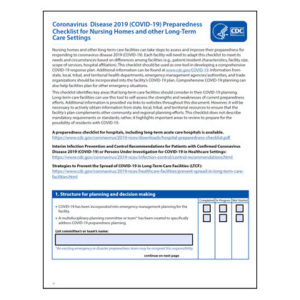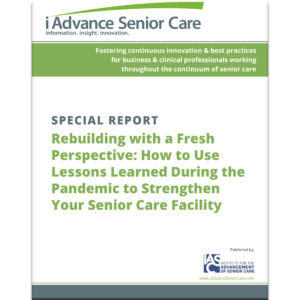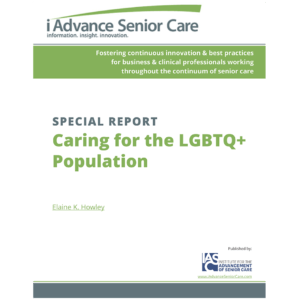The Joint Commission issues revised rules for LTC accreditation
Skilled nursing homes and rehabilitation facilities that apply for accreditation from The Joint Commission now have a revised set of program standards, refocusing the industry’s best practice efforts on the mission of patient-centered care. The commission also has introduced a new, optional certification program to recognize LTC facilities that provide excellence in specialty services.
The revised accreditation program and the new certification program were jointly announced Monday in response to the evolving nature of the senior services industry, following the input from caregivers and administrators. “Studies show that long-term care organizations are providing more complex care to their patients and residents than in the past, and they are seeking ways to meet increasing demands for quality oversight,” said Gina Zimmermann, executive director of the commission’s Nursing and Rehabilitation Center Accreditation, in a commission release. “The program will help nursing facility leaders proactively identify vulnerabilities to safeguard patients and residents. It can also help them to minimize the risk of readmissions from nursing homes to hospitals and other care providers.”
Some of the changes in the basic accreditation process include “additional patient and system tracer time [during surveys] to better identify potential risk areas as well as high performing areas” and an enhanced emphasis on involving families and residents in care decisions. In addition to the performance measurements already required under the program, “nursing facilities should consider collecting data on staff opinions and needs, staff perceptions of risk to individuals, staff suggestions for improving resident safety, and staff willingness to report adverse events,” the commission suggests.
Based on feedback from accredited facilities, the revised accreditation program also makes efforts to reduce unnecessary or redundant documentation, a long-standing complaint from providers in the past.
The new Rehabilitation and Advanced Care Certification program will enable facilities that offer specialized care a way to differentiate their services from others in the market, making their expertise known to accountable care organizations and other partners. Those who wish to pursue specialty certification must also be accredited through the basic accreditation program, the commission states in its description of the program.
The commission has posted the prepublication standards for both programs online.

Pamela Tabar was editor-in-chief of I Advance Senior Care from 2013-2018. She has worked as a writer and editor for healthcare business media since 1998, including as News Editor of Healthcare Informatics. She has a master’s degree in journalism from Kent State University and a master’s degree in English from the University of York, England.
Related Articles
Topics: Executive Leadership , Leadership , Medicare/Medicaid , Risk Management , Staffing











